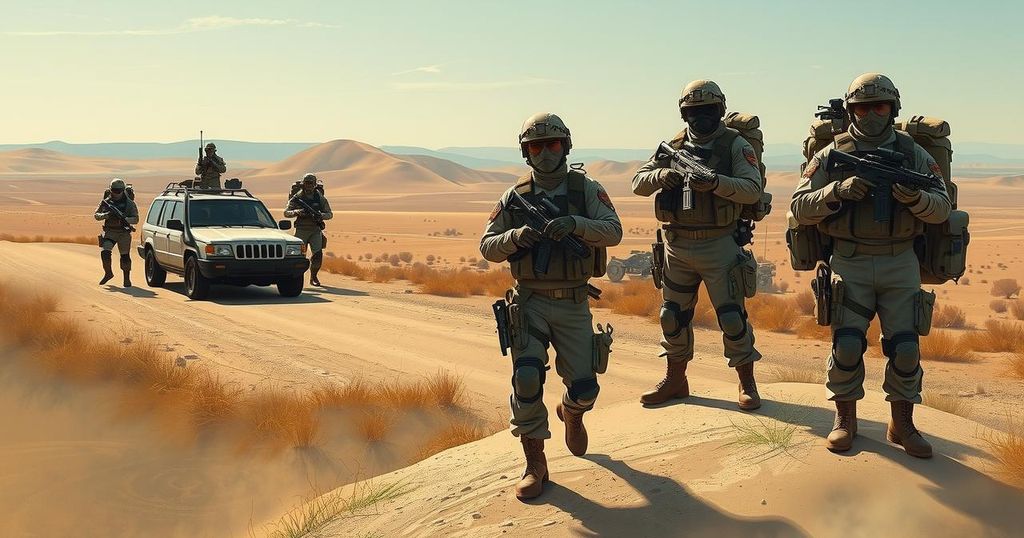Uganda has deployed special forces to South Sudan to support President Kiir’s government as tensions rise amid fears of renewed civil war. The move reflects both Uganda’s historical involvement in South Sudan’s politics and the ongoing political rivalry between Kiir and Machar. The situation is exacerbated by recent violence and calls for the implementation of a 2018 peace deal, with international scrutiny increasing.
Uganda has dispatched an unspecified number of special forces to South Sudan to safeguard the beleaguered administration of President Salva Kiir amid escalating tensions that threaten to plunge the nation back into civil strife. The Ugandan military spokesperson, Maj. Gen. Felix Kulayigye, indicated that their deployment to the capital, Juba, aims “to support the government of South Sudan” against potential rebel offensives.
Ugandan President Yoweri Museveni’s decision to send troops reflects his role as a guarantor of the peace process that is intended to maintain the fragile coalition government between Kiir and his deputy, Riek Machar. Historically, Museveni has intervened to bolster Kiir’s power amid South Sudan’s ongoing political turmoil.
The presence of Ugandan troops highlights the increasing volatility in South Sudan, which has experienced persistent instability since it gained independence from Sudan in 2011. The United States recently ordered non-emergency personnel to evacuate from Juba, while the United Nations voiced concern over an alarming regression that endangers the progress achieved in South Sudan.
The latest round of conflict arises from clashes between government forces and a militia known as the White Army, which is believed to support Machar. Incidents have escalated recently, including the killing of a South Sudanese general during a UN evacuation mission in Nasir, which has sparked further tensions.
Kiir has faced criticism from Machar’s faction for dismissing officials loyal to him and for actions that threaten the peace agreement. In response to the unrest, Kiir asserted his government’s commitment to addressing the crisis and maintaining peace despite the rising challenges.
The civil war that began in late 2013 occurred after disputes between Kiir and Machar evolved into ethnically charged violence, leading to significant casualties. Although a peace deal was signed in 2018, the ongoing rivalry and previous failures to honor ceasefires present substantial hurdles to achieving enduring stability. Pressure from the international community intensifies as both leaders are urged to expedite the implementation of the peace agreement and prepare for delayed elections, now set for 2026.
Both the political rivalry between Kiir and Machar and the failure to implement necessary reforms, such as army unification, continue to pose significant challenges to peace efforts in South Sudan.
In summary, Uganda’s deployment of special forces to South Sudan marks a critical response to rising tensions between President Kiir and his deputy, Machar, amidst fears of civil war. As both leaders navigate their precarious political relationship, international pressure mounts for adherence to the peace agreement and reforms. The situation demands ongoing attention to prevent a return to the violent conflict that has devastated the nation in the past.
Original Source: www.newsday.com






